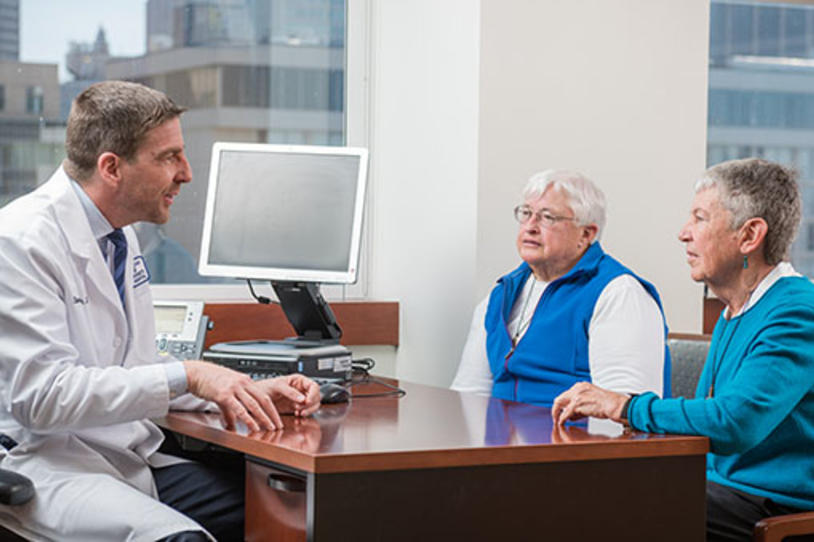
"How do I know if my symptoms are from 'old age' or Parkinson's?" This is a reasonable and commonly asked question that can be challenging to answer. Parkinson's disease (PD) is typically diagnosed around age 60 or later, so it's normal to wonder whether associated symptoms -- especially pain, stiffness, and memory or thinking problems -- might be due to getting older. It's also worth considering separate medical conditions -- such as arthritis, lower back pain (typically caused by "degenerative disc disease" or arthritis) or Alzheimer's dementia -- that can occur more often with aging.
Before Parkinson's is formally diagnosed, many people, their families (and sometimes their medical providers) blame slower walking and falls on aging. Or, they chalk stiffness and pain up to arthritic joints and "old bones" and write off memory problems as "senior moments." Some of these changes do naturally occur with aging, but not everything should automatically be dismissed as such without a closer look.
When trying to determine whether symptoms are from age, Parkinson's, another disease or a combination of them all, it goes without saying that you should discuss your symptoms with your doctor. If you don't bring them up, you can't get to the root cause and appropriate treatment. The following points may help guide those conversations.
For stiffness or pain:
- Pay attention to where the symptom is located.
Arthritis usually involves hand, knee or hip joints. It also may affect the lower back when changes and shifts occur in the discs between the bones in the spine. Parkinson's stiffness and pain typically affect the muscles, but PD pain can manifest in a number of ways -- everything from dystonia (a muscle contraction that leads to an abnormal posture, such as an inward turning of the foot) to vague sensations of numbness or tingling.
- Note if symptoms change when you take Parkinson's medications.
Unfortunately both arthritis and Parkinson's stiffness (and often pain as well) are worse in the mornings and after prolonged inactivity, so that usually doesn't differentiate the two. Logging symptoms in relation to PD drug administration may help, though. If stiffness and pain recur when medication wears off or if they improve when PD medications take effect, then your stiffness or pain may be due to Parkinson's disease.
- Try treating different conditions.
Sometimes figuring out whether symptoms are due to conditions associated with aging vs. Parkinson's disease comes down to treating one or the other and seeing what works. If you've got arthritis, low back pain and Parkinson's and aren't sure which is the main factor causing your symptoms, you might consider taking a stepwise approach to target the potential causes. For example, you could start with treating the arthritis and back pain with physical therapy or exercise, or anti-inflammatory or other prescription drugs. Or, you could instead adjust Parkinson's medications. If your first tactic doesn't work, then maybe that condition isn't the main contributing factor or you need a different strategy.
For memory or thinking problems:
- Compare yourself to your peers.
Ask others who are the same age and have similar health status and physical fitness level what they are experiencing. Do they also occasionally misplace their glasses and forget the name of the film they recently watched? If you and your friends notice similar mild difficulties, it may simply be normal aging.
- Consider neuropsychological testing.
Memory and other aspects of cognition (processing speed and executive functions, such as planning and organizing) may not be as sharp as you celebrate more birthdays, but they also can be impacted by Parkinson's. A detailed cognitive examination, called neuropsychological testing, can pinpoint any cognitive issues and often also characterize whether they are due to PD or another condition.
For walking and balance disturbances:
- Look for more than a general slowing down.
Certain walking changes, including decreased speed, happen normally with aging. Older people also are at an increased risk for falls, even if they don't have Parkinson's. Shuffling gait, reduced swinging of one arm while walking and freezing episodes are not normal changes in walking that occur with getting older. If you do have Parkinson's, walking and balance problems can be part of the disease, but as with other symptoms, they could be due to other conditions as well. It's important to first discuss them with your doctor to ensure they are fully evaluated. Then, if your doctor approves, work with a physical therapist.
- See a physical therapist.
A physical therapist with expertise in neurological conditions can assess your posture, walking and balance to determine if any changes are from Parkinson's, age or another condition. The therapist can recommend an assistive device (cane or walker) if necessary and design an individualized treatment program to target your symptoms.
Separating the symptoms of Parkinson's from changes that can naturally occur with aging and other medical conditions that can arise as you get older can be challenging. Be your own best advocate and work in partnership with your healthcare team. Don't automatically assume everything you experience is from Parkinson's; instead, take a comprehensive approach to evaluate and manage each of your symptoms.
Watch a webinar on pain and fatigue in Parkinson's.
